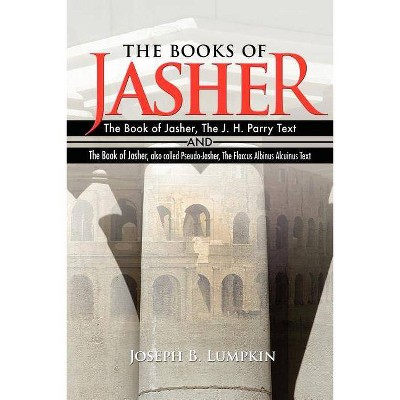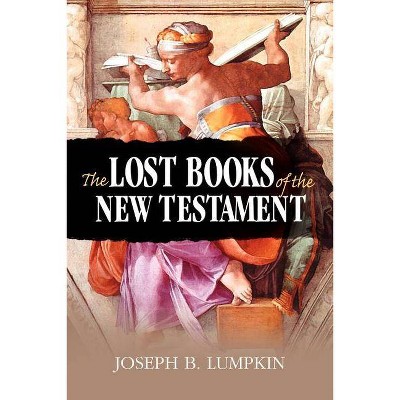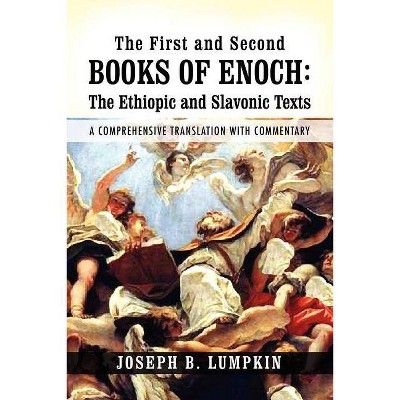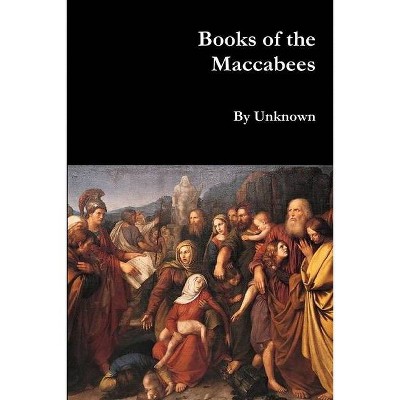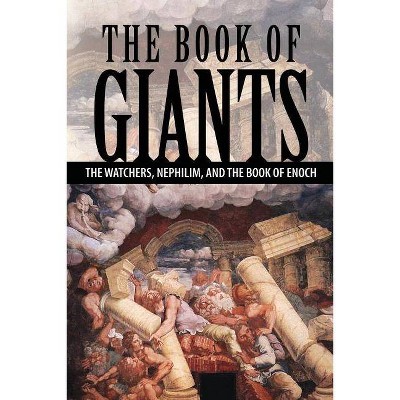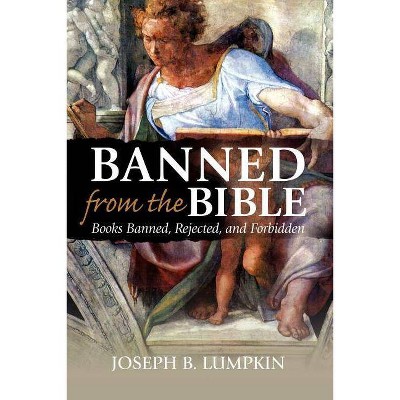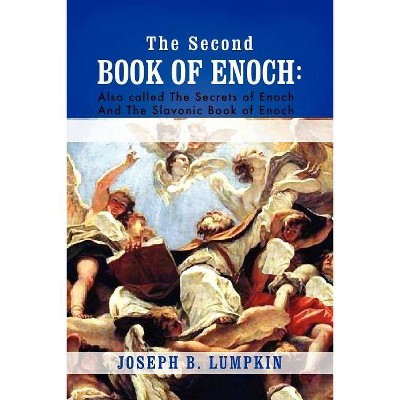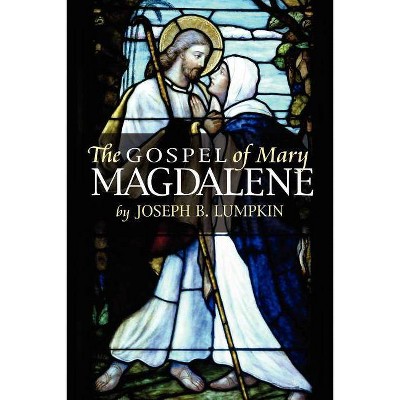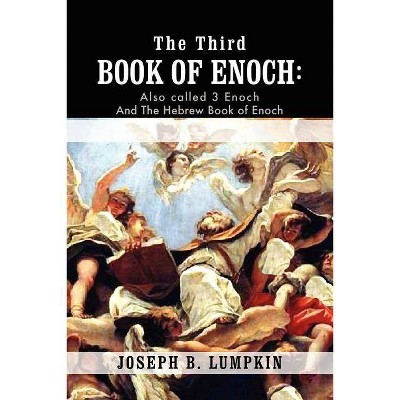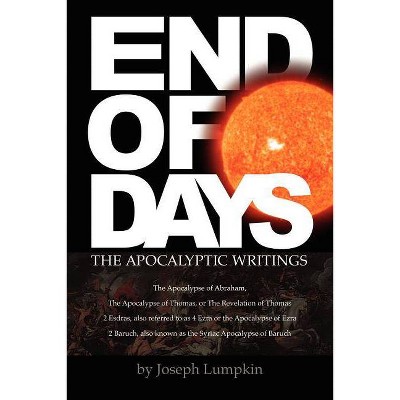The Books of Maccabees - by Joseph Lumpkin (Paperback)
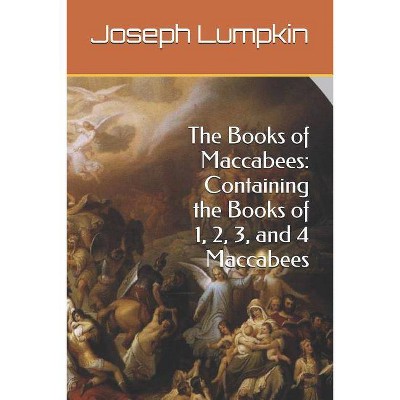
Similar Products
Products of same category from the store
AllProduct info
<p/><br></br><p><b> Book Synopsis </b></p></br></br>1 Maccabees - Although the book presents the Jewish leaders Judas, Jonathan, and Simon as devout people and has little sympathy for people who favor hellenization, it must be noted that he nowhere mentions divine intervention. The contents of the book can be summarized as follows: Chapter 1-2: The hellenization of Judah and the non-violent resistance by Mattathias; Chapter 3-9: Military actions by Judas the Maccabaean ('battle hammer'): after 166, he defeats the Seleucid armies three times and liberates Jerusalem, where the temple is purified; more operations; Judas' defeat and death in 161; Chapter 9-12: Continued warfare, led by Judas' brother Jonathan (160-143), who, benefiting from wars of succession in the Seleucid Empire, restores the fortunes of the Jewish nationalists and adds to their territories; Chapter 13-16: The third brother, Simon, achieves political independence and founds the Hasmonaean dynasty.2 Maccabees2 Maccabees has a much greater interest in theology than I Maccabees. 2 Maccabees is not as well written and has a less polished form. The pagans are defined as 'blasphemous and barbarous nations' in 10.4, but there are also severe censures of apostate Jews, of whom there must therefore, have been considerable numbers. We find theological features in 2 Maccabees such as the resurrection of the body in 7.11; 14.46. This stand in stark contrast first to Wisdom and Philo, both of which teach the immortality of the soul. In 7.28 there appears for the first time in Hebrew thought the doctrine which will later be called creatio ex nihilo, which is the belief that creation, and thus all things created, was brought about out of nothing. That is to say that God made the world not from things which were, which is not identical with 'nothing' in the philosophical sense of the term. In 7.9, 14 (cf. 14.46; 12.43) we have concepts of eternal life and death, and in 12.43 the intercession of the living for the dead, an element on which the Catholic church has sometimes sought to found the doctrine of Purgatory. 3 Maccabees- The title of 3 Maccabees is a misnomer because the book has nothing to do with the Maccabees, who are never mentioned in it. The book is a story about a situation in which the Jewish people, this time in Egypt, were in danger of being annihilated by a Hellenistic monarch, who was attempting to topple their religious convictions and practices. The book was composed in Greek and relates a story set in the time of Ptolemy IV Philopater (221-203 B.C.E). 4 Maccabees - 4 Maccabees belongs to the Maccabees series only because it deals with the beginning of the persecution of Jews by Antiochus IV Epiphanes. It possibly was written during the reign of the emperor Caligula (C.E. 37.) The work's main religious theme is that the martyr's sufferings expunged the sins of the entire Jewish people through a type of propitiation. The Maccabees books were preserved only by the Christian church. Augustine wrote in The City of God that they were preserved for their accounts of the martyrs.
Price History
Price Archive shows prices from various stores, lets you see history and find the cheapest. There is no actual sale on the website. For all support, inquiry and suggestion messages communication@pricearchive.us
